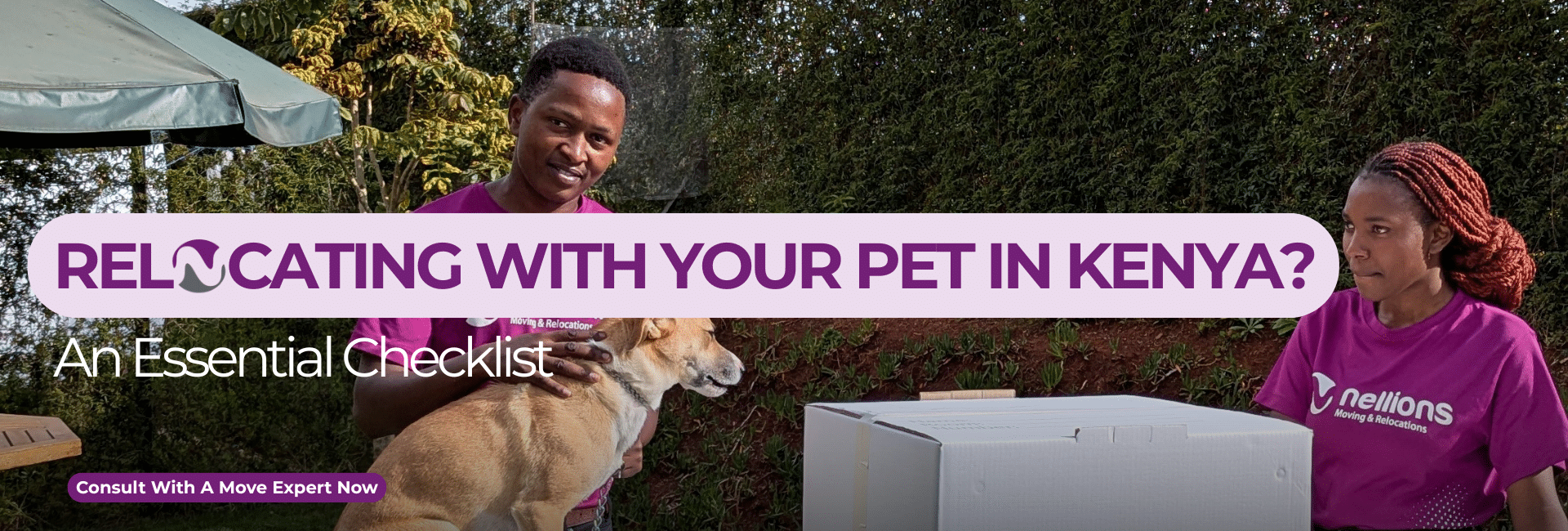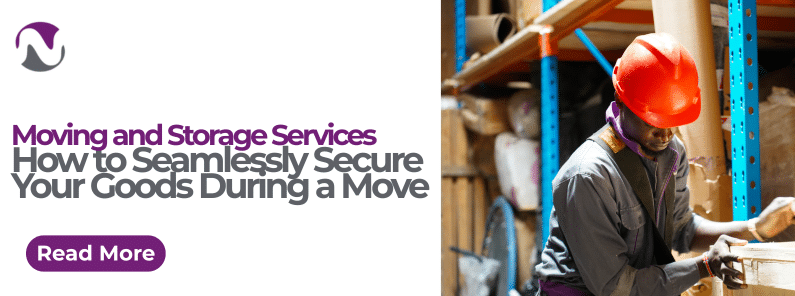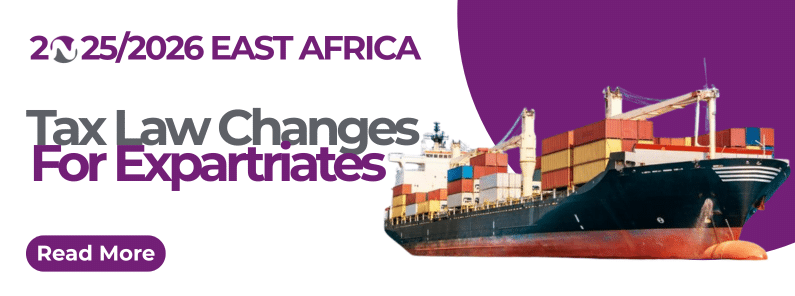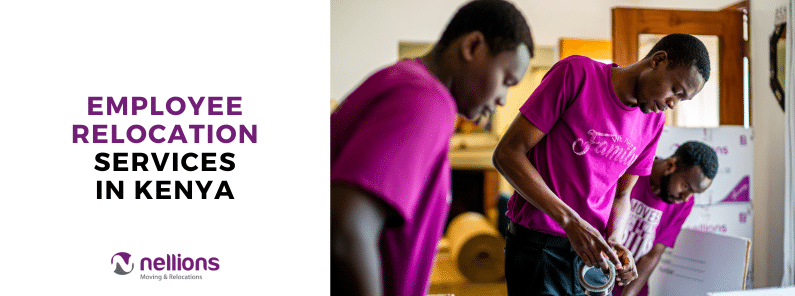The moving industry is an essential part of Kenya’s bustling economy, facilitating everything from family relocations to corporate transitions. However, the process often comes with an unintended consequence: a significant environmental footprint. From excessive use of packaging materials to carbon emissions from moving trucks, the impact on the environment can be considerable.
This begs the question—how can moving companies adopt sustainable practices to reduce their environmental impact while still delivering excellent service?
In this article, we explore practical and eco-friendly strategies that moving companies in Kenya can implement to embrace sustainable moving practices. From green packaging solutions to optimizing logistics and waste management, we’ll dive into ways to make the moving process more environmentally friendly and aligned with Kenya’s sustainability goals.
Understanding the Need for Sustainable Moving
Every relocation involves multiple steps that can strain the environment. Think about the amount of cardboard, bubble wrap, and plastic used for packaging. Consider the emissions generated by trucks traveling across Nairobi’s busy streets or on long-distance hauls. Now, multiply this by the thousands of moves happening across the country each year.
This impact underscores the need for sustainable moving—a set of practices that reduces waste, minimizes emissions, and supports environmental conservation. Not only do these efforts benefit the planet, but they also appeal to eco-conscious clients who are increasingly prioritizing green services.
Green Packaging: Small Changes, Big Impact
One of the simplest ways for moving companies to embrace sustainable moving is through eco-friendly packaging solutions. Instead of relying on single-use plastics and non-recyclable materials, companies can:
- Use biodegradable materials, such as recycled paper and cardboard, for wrapping fragile items.
- Recycle and reuse sturdy boxes, wood crates, and packing supplies, reducing demand for new materials.
- Partner with local suppliers who provide eco-friendly packaging options, cutting down on carbon emissions from long-distance procurement.
For example, a moving company in Nairobi could offer a program where clients return used boxes after their move. These boxes can be cleaned, inspected, and reused for future moves, saving resources while reducing waste.
Streamlining Logistics for Environmental Efficiency
Logistics play a major role in the carbon footprint of any move. Long and inefficient routes can lead to unnecessary fuel consumption, while underutilized trucks waste valuable resources. Moving companies can take several steps to improve logistics efficiency:
- Plan routes using GPS-enabled systems to minimize travel time and fuel consumption.
- Consolidate smaller shipments into a single truckload, reducing the number of trips required.
- Invest in fuel-efficient or electric trucks, which not only cut emissions but also appeal to environmentally conscious clients.
For instance, groupage services—where multiple clients’ goods are transported together—are a sustainable solution gaining popularity. This method not only saves fuel but also lowers costs, making it a win-win for both the environment and the client.
Responsible Waste Management: Reducing Moving-Related Waste
Waste management is another crucial aspect of sustainable moving. A significant portion of the waste generated during relocations comes from discarded items, non-recyclable packaging materials, and unpacking debris. Moving companies in Kenya can implement practical solutions to tackle this issue:
- Encourage Donations: Partner with local NGOs to collect and donate unwanted but usable items like furniture, clothing, and electronics. This reduces waste while supporting underprivileged communities.
- Recycle Packing Materials: Establish systems for collecting, cleaning, and reusing packing materials such as cartons and wooden crates. Clients can even opt to pay a nominal fee to participate in such eco-friendly programs.
- Sort and Recycle Debris: At the end of each move, segregate waste into recyclable and non-recyclable categories. Partner with recycling facilities to process items like paper, plastic, and metal.
For instance, a Nairobi-based moving company could collaborate with recycling hubs in the city to handle unpacking waste sustainably. This not only minimizes environmental impact but also positions the company as a socially responsible business.
Leveraging Technology for Sustainability
Digital transformation can significantly enhance the sustainability of Kenya’s moving industry. By reducing reliance on paper and streamlining operations, companies can minimize waste and energy use. Here’s how technology can help:
- Paperless Operations: Use CRM software to handle leads, contracts, and job documentation digitally. Moving teams can also rely on mobile apps to track inventories and communicate with clients, eliminating the need for physical paperwork.
- Digital Surveys: Instead of physical pre-move assessments, conduct virtual surveys using video calls or online forms. This reduces the need for travel, cutting down on emissions.
- GPS Fleet Management: Optimize truck routes with GPS-enabled systems, ensuring fewer trips and lower fuel consumption.
For example, companies like Nellions Moving & Relocations could implement digital inventory systems that allow clients to view their packed items in real time. This adds transparency to the process while reducing paperwork.
Employee and Client Engagement in Sustainable Practices
Sustainability isn’t just about policies and technology—it’s also about people. Engaging both employees and clients in eco-friendly practices can amplify the impact of sustainable moving.
- Employee Training: Train staff on eco-friendly packing techniques, waste segregation, and efficient vehicle operation. This ensures every move adheres to sustainability standards.
- Client Education: Provide clients with tips on how to prepare for an eco-friendly move, such as sorting items for donation or opting for reusable packaging materials.
- Incentives for Green Choices: Offer discounts or perks to clients who choose sustainable options, like reusing boxes or consolidating shipments.
By involving all stakeholders in the journey towards sustainability, moving companies can create a culture of responsibility that extends beyond individual relocations.
Collaborating for a Greener Future
Sustainability in the moving industry cannot be achieved in isolation. Collaboration with stakeholders, including suppliers, NGOs, and government entities, is essential for driving impactful change. In Kenya, moving companies can:
- Partner with Recycling Centers: Work with local recycling facilities to ensure proper disposal of waste materials, from packing debris to old furniture.
- Engage with Environmental NGOs: Participate in tree-planting drives, cleanup events, or educational campaigns to offset carbon emissions and raise awareness about sustainability.
- Advocate for Industry Standards: Collaborate with industry peers to develop and adhere to eco-friendly guidelines, such as using biodegradable materials or minimizing energy consumption during relocations.
For example, a partnership with a local NGO could allow moving companies to collect unused household goods during moves and distribute them to needy communities. This fosters goodwill while addressing waste reduction goals.
Highlighting Success Stories: Kenya’s Sustainable Movers
Several Kenyan companies are already making strides in sustainable moving. From adopting energy-efficient trucks to introducing reusable packing materials, these efforts demonstrate that eco-friendly relocations are achievable.
A great example is the adoption of groupage services for international moves. By consolidating smaller shipments into larger containers, companies reduce both emissions and costs, offering clients a sustainable and budget-friendly option.
Another inspiring practice involves turning waste into value. Some movers collect unpacking debris, such as cartons and wood, to repurpose into packaging materials or donate to schools and community centers for reuse.
The Business Case for Sustainable Moving
Adopting sustainable practices isn’t just about environmental stewardship—it also makes good business sense. Here’s why:
- Attracting Eco-Conscious Clients: More individuals and businesses are seeking service providers that align with their sustainability values.
- Reducing Operational Costs: Reusing materials, optimizing logistics, and minimizing waste can lead to significant cost savings.
- Enhancing Brand Reputation: Demonstrating commitment to sustainability builds trust and loyalty among clients and stakeholders.
By embedding sustainability into their operations, Kenyan moving companies can set themselves apart as leaders in an increasingly competitive market.
Conclusion: Shaping the Future of Moving in Kenya
Sustainability is no longer a choice—it’s a responsibility. By adopting green packaging, optimizing logistics, managing waste responsibly, and leveraging technology, Kenya’s moving industry can significantly reduce its environmental footprint.
As clients demand more eco-conscious services, companies that prioritize sustainable moving will not only contribute to a greener planet but also secure a competitive edge in the market. Let’s make every move a step toward a more sustainable future for Kenya.
Sustainable Moving in Kenya: A Growing Opportunity
Kenya is uniquely positioned to lead the way in sustainable moving across Africa. With increasing awareness about climate change and environmental conservation, more clients are seeking services that align with their values. Moving companies that adopt sustainable practices can set themselves apart as industry leaders while contributing to Kenya’s long-term sustainability goals.
Sustainability at Nellions: Leading the Green Movement in Kenya’s Relocation Industry
At Nellions Moving & Relocations, sustainability isn’t just a buzzword—it’s a core principle that guides our operations. Recognizing the pressing need to minimize the environmental impact of relocations, Nellions is at the forefront of introducing innovative sustainability practices tailored to Kenya’s unique ecosystem.
We’ve pioneered the use of recyclable and reusable packing materials, significantly reducing waste generated during moves. By embracing a circular approach, we collect, clean, and reuse sturdy packing materials like cartons and crates, ensuring they get a second life. We were also the first to introduce reusable moving crates into the Kenyan moving industry way back in 2014.

Our logistics optimization strategies focus on reducing carbon emissions by consolidating shipments (with other moving companies as well) and adopting fuel-efficient vehicles. These efforts not only lower our environmental footprint but also improve operational efficiency.
Beyond these initiatives, we are exploring digital solutions like paperless operations and virtual surveys to streamline processes and further reduce resource consumption. As the relocation industry evolves, Nellions remains committed to pushing the envelope, setting new benchmarks for sustainable moving in Kenya, and inspiring others to join the green movement.
Together, we’re not just moving homes; we’re moving towards a greener, more sustainable future













